|
In Cameroon

|
I arrived in this country for the first
time and rapidly got to know Douala, the economic capital, with
its great harbour on the ocean and Yaoundé, the political
capital. |
When I said to the Cameroonians that
my destination was Moloundou, they were astonished! They had
never gone to this most out-of-the-way village of Cameroon situated
at the border of the Congo but they knew that Moloundou was far
away and the trails to go there are not safe. Their curiosity
is even greater. Why are you going there ?
|
Because I have been invited by Mathias,
a Cameroonian Pentecost's minister. A few years ago, he had chosen
with his wife to leave his ministry in Douala to live amongst
the pygmies who were put aside and threatened. He was said to
be crazy. |
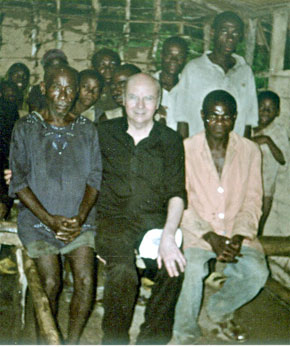
|
Another life started for him, his
wife and his children. Mathias felt isolated. He wanted me to
see the work he was doing and to be reinforced in his project.
His project seemed evangelical to me so I decided to go on location.

|
Mathias travelled 1300 Km to meet me
at the airport. On my departure he was also there and he did
not hesitate to make this long trip to accompany me. |
It took us three days to arrive in
Moloundou. It was hot and humid and there was exuberant vegetation.
The trees with flowers are enchanting and I admired the butterflies
with their long wings. In the overcrowded taxi bus, I was the
only white man and it was the same the whole weeklong. The trucks
carrying trees regularly pass on the trail raising clouds of
red dust transforming little by little our faces and clothes.
A violent storm broke out. There was no more dust but the trail
became almost impassable.
|
Some 300 trucks leave the forest everyday
in Cameroon. They are loaded with enormous tree trunks, heading
for the harbour of Douala. Accidents are not uncommon on the
trails. I saw three loads toppled over in the ditch. |
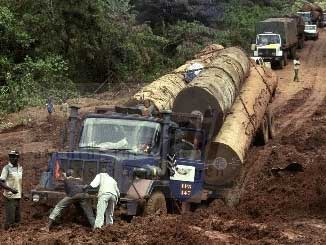
|
I was staying in the poor house of
the minister. We are a great number! Not counting the children,
there were also young pygmy orphans living there. When you need
water, you take a bucket and fill it up at the well. When night
fell, we lit the oil lamp.
|
With Mathias and his wife, we sat in
front of the house alongside the road. The evening was calm.
We took the time to talk. A few mosquitoes joined us. |
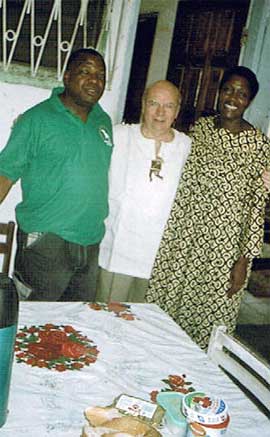
|
The equatorial forest impressed me.
It is said to be a primary forest. Trees with giant trunks have
grown in the middle of a tangle of lianas and bushes. We could
hear the birds. Trees 50, 60 metres in height were overlooking
the huge forest.
|
It is there that I met the Pygmies,
called here Bakas. Their life is the forest. They find what they
need to eat in the forest. |
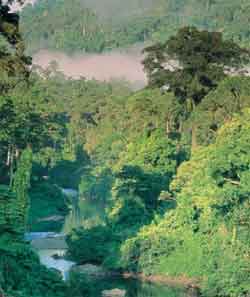
|
I found them reserved and attentive.
They greeted the stranger that I was who had come to visit them.
Most do not have a civil status. To build trust, give them access
to school and health care, those are the tasks to which are dedicated
Mathias and other Christians. Let us not forget the plantation
of oil palm trees that give hope to the Bakas.
The forest is the prey of the timber
companies. The destruction of trees for commercial purposes is
weakening this natural heritage of humanity. Wildlife and plants
is slowly disappearing.
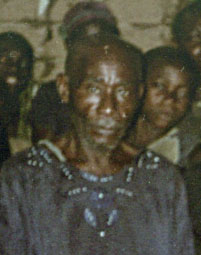
|
By touching the forest it is also touching
the Pygmies. Large-scale deforestation is threatening their future. |
|